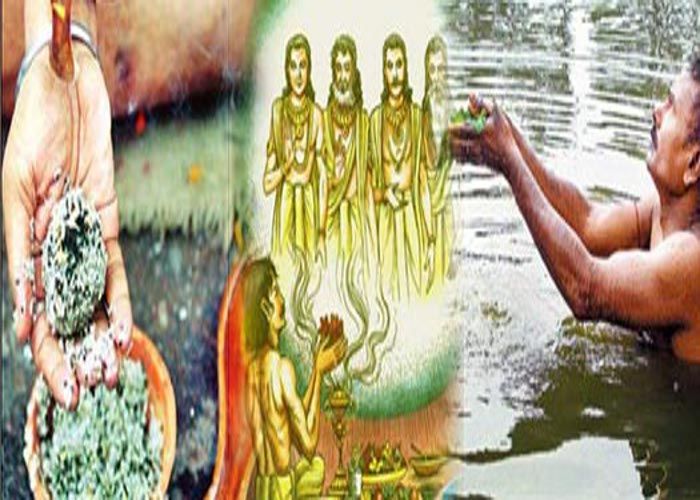
Pitra Paksha
Human race would not have existed if our ancestors had not transferred all the knowledge, skills, languages, culture and many other things necessary not only for our biological survival but for survival of our civilization too.
Pitra paksha is that period of each year which is dedicated to our ancestors in which we express our gratitude to them by performing certain rituals. It is a 15 day mourning period marked by many pujas, rituals and daan (charity) that helps the departed souls to attain liberation.
It comes just before Sharad Navratri starting from the full moon day of Bhadrapad month and ending after 15 days on ‘sarvapitri amavasya’. In Hinduism it is extremely important that the close relatives of the deceased person make sure that body and soul leave the mortal world in a dignified manner. Shraddha is meant to attain this purpose. The shraddha ritual is usually conducted by either the eldest son of the deceased or any male relative. However in some cases women too can conduct shraddha. It is said that if it is performed in the right way the departed soul comes down to bless near and dear ones.
We owe a karmic debt to our ancestors. By performing ‘pind daan’ during shraddha we try to pay it back. It is believed that after leaving the earth our preceding generations reside in the world between heaven and earth; which is ‘pitra loka’ (place of ancestors). This realm is governed by Yama, the god of death. Here our ancestors are not able to find respite from the bodily needs like hunger, thirst, heat, cold etc. They can get relief only by the puja or offerings performed by their succeeding generations on earth. Food, grains, clothes and other essential belongings are offered as charity. Food is offered to animals insects and birds. It is said that the ‘raja- tama’ waves of our ancestors are attracted by the animals like cows, dogs and crows. Hence we offer food to them.
It is always preferred to perform shraddha on the death anniversary of the departed family member; however if the date is not known one can perform the rituals on the last day of pitra paksha on ‘sarvapitri amavasya’.
Things not to do on pitra paksha ----
--It is considered inauspicious to start a new venture or weddings
--one should refrain from buying new clothes or household items, property, jewellery etc.
--Avoid haircut or shaving
--Non vegetarian food is strictly prohibited during the entire span of pitra paksha.
--If performing ‘Brahma bhoj’ only pure items like cow’s milk, ghee, and curd should be used and onion , garlic must be discarded.
It is believed that the souls of three preceding generations reside in pitraloka. When a person of next generation dies, the first generation shifts to heaven and unites with God, so shraddha offerings are not given. Thus shraddha rites are performed only for three preceding generations.
According to Mahabharat, when the legendary donor Karna died in the war, his soul was taken to heaven . There he was offered with lots of gold jewels and other precious things but was not offered food. Being hungry he asked the heaven king Indra that why he was not served with food. Indra explained that as he always donated jewellery in the name of his ancestors and not any food so he was getting the same. Karna replied that he was unaware of it and asked Indra a chance to correct his mistake. Thus Karna performed shraddha during this period and donated large amount of foods, grains and water in the name of his ancestors.
Thus pitra paksha gives present generation a chance to repay their debt to their ancestors which is of utmost importance.
Author Ms Hema Trivedi is an ardent devotee of Sri Krishna.